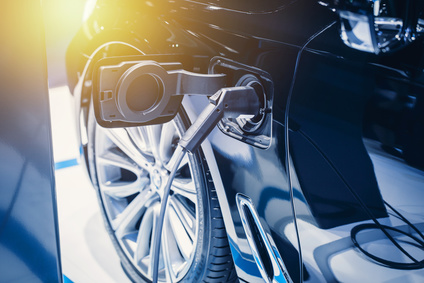Variable Hydro rates could boost electric cars

In a report made public last week, Quebec’s Energy Board recommended that Hydro Québec adopt variable pricing based on the time of day and the demand for electricity. Hydro-Québec intends to come up with a detailed plan this summer.
The idea is to use price as an incentive for users to modify their habits, consuming less electricity during peak demand times and more during off-peak hours. By introducing such “peak-load” pricing, the utility can limit the amount of new generating capacity it must install in the coming years. But the benefits of such a move don’t stop there: it can simultaneously provide an indirect stimulus for the purchase of electric vehicles.
The connection with the car market is through lithium ion batteries, which have an expected lifespan of about eight years in electric vehicles. Thereafter, the batteries lose approximately 80 per cent of their original capacity, are less efficient in the charging and discharging cycle, and do not provide sufficient boost for acceleration.
But this does not mean they need to be retired from use entirely. Such batteries can store electricity for another 10 years if refurbished, and can be used in commercial buildings or individual homes. In domestic and commercial use, the capacity decay is slower because the demands placed upon the batteries are less stressful — instant power surges are unnecessary, for example.
For this “second life” to materialize — for such repurposed batteries to be actually bought and installed as power storage devices — users need a return on their investment. This means that it should be cheaper to install the storage, and thereby have a relatively smooth supply of electricity throughout the day, than to pay the peak-load price during peak times and have an uneven flow of electricity because of reduced use at those times.
This can happen if the power supplier provides electricity at a low cost when energy is plentiful, and charges more when energy is scarce due to demand surges. For example, if Hydro-Québec were to charge 4 cents per kilowatt hour (Kwh) at off-peak times, and 12 cents per Kwh during peak hours, then that difference could encourage the installation of refurbished batteries. The user can then charge the battery at 4 cents, and use it to avoid paying 12 cents at peak hours.
The resulting demand for repurposed batteries would reduce the overall cost of owning an electric vehicle. Right now, the battery accounts for a substantial part of the vehicle’s production costs, and the installation of a new battery is exceedingly costly. But a secondary market for the battery would provide the potential car buyer with additional incentive to consider an electric vehicle.
If electricity is priced identically at all times, there is little incentive for individuals or businesses to adopt such storage.
Successive Quebec governments have consistently stated that Quebec should be a leader in sustainability. Price mechanisms are generally more effective than the kinds of top-down regulations outlined in Bill 104, passed in the National Assembly in 2016. That bill will require that a specific proportion of vehicle distributors’ sales be in the form of electric vehicles starting in 2018.
But these regulations will have a small impact on total emissions. For one thing, if manufacturers sell more electric vehicles in Quebec than is necessary under federal regulations, they will be able to sell fewer of them elsewhere.
The Montreal Economic Institute recently released a study explaining why direct purchase subsidies for electric cars are an inefficient and costly way to reduce greenhouse gases. But there are ways to promote these cars without squandering taxpayer dollars.
A price mechanism such as the one Hydro-Québec says it will implement can encourage an efficient use of resources — both by limiting the need to add generating capacity to the network, and by stimulating, without taxpayer subsidies, the market for electric vehicles.
Ian Irvine est professeur d’économie à l’Université Concordia et chercheur associé à l’Institut économique de Montréal. Il signe ce texte à titre personnel.

